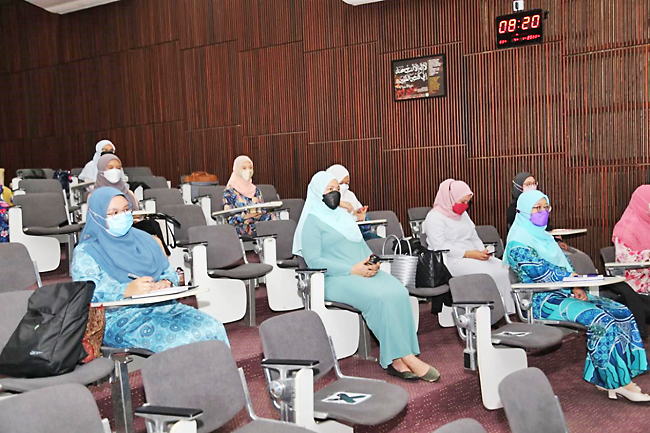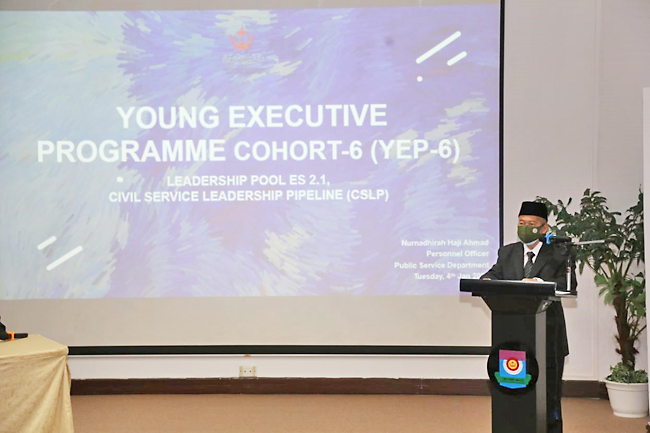Izah Azahari
The 6th Young Executive Programme (YEP-6) officially started on January 4 with an opening ceremony at the Civil Service Institute (IPA) building participated by 29 programme participants.
Public Service Department (JPA) Acting Deputy Director-General Rusdi bin Haji Judin was the guest of honour during the opening ceremony.
IPA Director Dr Hajah Noor Maya binti Haji Md Salleh congratulated the programme participants in her welcoming remarks.
The director said IPA made various initiatives to support Brunei Vision 2035 including diversifying the courses offered, expanding relationships with local and foreign training agencies, emphasising non-passive learning methods such as ‘hands-on’ learning elements and practicals as well as strengthening relationships with government and non-government agencies.
The event then saw a speech by the guest of honour where he explained that the selection made by JPA and cooperation from IPA is not based on physical aspects but on participants’ leadership potential, focussing on self-leadership in the early stages of service, including the ability to be calm when given an assignment; smart; disciplined with a positive attitude; the ability and self-confidence to collaborate with other group members; respects the opinions of others; help each other; and the ability to communicate well.


“These are the characteristics of leadership that are sought and formed, and further enhanced while attending this YEP-6, in addition to providing the knowledge and skills needed to start a career and perform duties in the civil service,” said Rusdi.
The acting deputy director-general went on to say that once in the Civil Service Leadership Pipeline (CSLP) Leadership Pool, apart from attending leadership development courses provided by the JPA, it is participants’ own responsibility to ensure that the learning and self-development process is implemented continuously.
“This is also related to the 70:20:10 learning model where 70 per cent is based on work experience, 20 per cent is based on coaching and mentoring programmes while 10 per cent is through formal learning programmes such as YEP,” he added.
The objective of the programme is to develop and manage potential leaders with high values and positive behaviours, who are then able to achieve the desired results and improve organisational performance. The programme is intended to strengthen the capabilities of future leaders in order to meet the ever-changing needs of the public.






